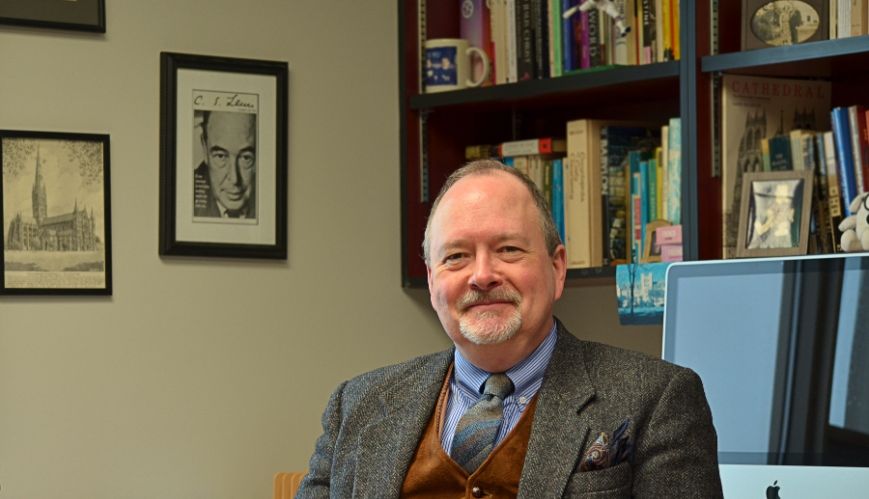Ethics on the cheap

Ethics on the cheap
6 September 2017
John Stackhouse calls for Christians to bring intelligent, measured debate to the public issues of our day.
I had the privilege recently of appearing again on the ABC’s Q&A program. As is often the case after such events, some people were keen to acquaint me with their opinions of my views. But several people also wanted to chide me for what I didn’t say.
“You’re a Christian ethicist!” I heard from such viewers. “You’re supposed to stand up for the planet and insist that politicians adopt, immediately and wholesale, green policies – full stop.”
They said such things because the main discussion of the first segment of the program centred on a $1 billion loan from the Australian Government to help finance a huge coalmine and railroad project in Central Queensland.
There are lots of critics of this massive undertaking. The Financial Times reports that several large banks ruled themselves out of lending money to the project, partly due to environmental concerns and partly out of worries about the project’s commercial viability.
Public subsidies from federal and state governments in Australia for this project has also enraged environmentalists, who want to see no further investment in coal. And some competitors fear that such assistance represents unfair advantage and will hurt their own business.
Senator Matt Canavan, the then-Federal Minister for Resources and Northern Australia, argued, instead, that more than 16,000 jobs would be generated by this investment and that the coal would be sold to India to replace much less efficient coal now being burned there, thus actually improving the global net carbon output.
Clearly these are complicated issues, as politicians weigh up the immediate needs of workers and families in northern Australia, where unemployment is relatively high, and the help such coal would be to Indian customers, who suffer from rampant pollution, against the alternatives of government investment in green energy sources and more financially stable businesses. (The Adani Group, the main backer of this project, is reported to be highly leveraged.)
That’s what politicians are supposed to do. What pundits such as I can do to help in this discussion is to point out poor arguments and false information put out by interested parties, and to remind politicians of ethical principles they might have somehow forgotten.
Alas, however, what is all too easy to do is what I was asked to do by critical viewers: take time on national television to state my support for clean energy, renewable resources, and proper government priorities in the face of global climate change.
I refused to spout such truisms because, among other reasons, I was convinced that no one on that show was, in fact, in favour of pollution, or supportive of using up non-renewables, or keen on wasting government money.
To declare that global climate change is an important issue nowadays is generally not an interesting thing to say, and especially on a program such as Q&A, whose editorial tilt to the left is widely recognised in Australia.
To say that one favours cleaner energy sources and wiser government priorities is to congratulate oneself on simple common sense. So what is to be gained by making such assertions, beyond a few seconds of pleasant applause from some members of the audience?
What is needed is what Senator Canavan – and, indeed, the other politician on the program, Queensland Labor MP Terri Butler – engaged in, however briefly, on the program: intelligent, measured debate about the pertinent facts, about how to interpret them, and about what then to do amid the clash of various goods.
It is all too easy for someone from the middle class of the developed world to champion green energy sources at the expense of the welfare of the working class of her fellow Australians and of the welfare of people in the developing world.
It is all too easy to say that the government ought to spend money better than it does without looking closely enough at what real choices are available, rather than the ones we wish were available instead. What passes for deliberation over public issues today all too easily descends into what is all too easy to say.
But politics usually is hard, as it appears to be in this case, and we must say instead what is hard both to say and to hear: Easy solutions are not at hand for many of the issues that we face. So by all means let’s press for a safer, greener, healthier planet. By all means let’s hold governments accountable for questionable policies.
But let’s also be willing to accept the grim truth that progress usually comes incrementally, via compromise and negotiation, with unpleasant costs and unanticipated collateral damage.
And let’s urge our politicians to do what Canavan and Butler tried to do on Q&A: keep complicated matters complicated and refuse bumper-sticker alternatives. It might not make for gripping TV, but it will make for a better world.
John Stackhouse is Professor of Religious Studies at Crandall University in New Brunswick, Canada.